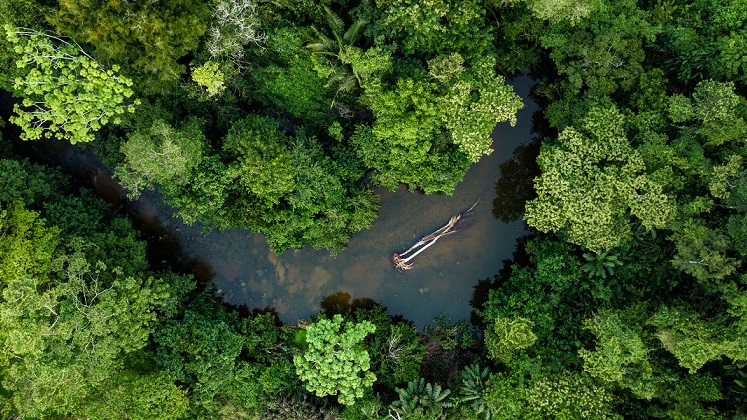Climate change is currently a huge problem in Africa because it goes beyond its origin’s boundaries and affects people outside the epicentre. Its impact has sparked debates and negotiations at local, regional, continental and international levels, and the resulting resolutions aim to address the crisis. The Paris Climate Agreement resulted from joint efforts by nations committed since the Industrial Revolution era to limit global warming to less than 2.0 degrees Celsius to prevent a climate catastrophe caused by greenhouse gas emissions.
Africa is Already in Momentum
Africa herself, is already in momentum to ensure that climate change is silenced. The African Union’s Agenda 2063 outlines a posterity for climate resilience for Africa’s future prosperity. From the provision of Agenda 2063, other initiatives, such as the Great Green Wall initiatives, lay the foundation for restoring degraded lands across the Sahel region to fight against ongoing food insecurity and combating desertification.
Also, the adaptation for the Smallholder Agricultural Programme (ASAP) through intra-continental cooperation supports African farmers in adapting to climate change through modified farming practices. The farming practices currently adopted include Climate Smart Agriculture (CSA), which promotes high agricultural productivity using environmentally friendly methods.
As climate change directly affects Africa, the international community is looking for sustainable ways to address the impacts on the vulnerable continent. The cumulative actions of multiple actors worldwide result in devastating impacts that show up more in Africa due to poor climate change mitigation and adaptation measures. The international community met up and finally agreed that successful climate action requires strong support from a wide range of international stakeholders such as governments, regional integration, investors, traders and civil organizations.
Read related: Why Farming Should Not Be Blamed for Climate Change Conundrum.
International Cooperation Strategies to Fight Climate Change
Firstly, establishing international policies and institutions to promote the diffusion of decarbonization technologies and low-carbon measures. The policies accelerate the exchange of cross-border innovations to achieve common adaptation and mitigation goals.
Well, climate policy is structured to meet needs at international, regional and local levels. The policies created are supported by efficient implementation by involving civil organizations (CBOs), the private sector and other non-state actors. For example, the rise of the United Nations Framework Convention on Climate Change (UNFCCC) is one of the fruits of international cooperation.
It is a crucial global framework that strengthens international cooperation to combat reckless climate change. The UNFCCC agreements and protocols provide Africa with a platform to work with the international community to reduce greenhouse gas (GHG) emissions and prepare climate change mitigation and adaptation strategies.
Secondly, the method of joint implementation between countries to participate in emission reduction projects to reduce greenhouse gas emissions by achieving common reduction targets. The method involves one country funding another country to cover the shortfall in achieving its emissions reduction target.
The method enables developed industrial countries, so-called Annex I and Annex II countries, to achieve their reduction targets by providing developing countries with the resources necessary to reduce their emissions, such as financing reforestation programs. Therefore, through joint innovative collaboration and partnerships between countries, we increase the chances of liberating Africa from climate change.
Thirdly, climate finance arises from international cooperation to solve the problem of inadequate financing of climate protection measures. Activities such as reducing emissions, promoting adaptation and building resilience in Africa require significant financial resources and capital investments.
Climate funds can be raised through international collaboration from individual, public, private and other philanthropic sources. The international collaboration raises funds from developed countries that can address the climate crisis through the Adaptation Fund (AD), the Global Environment Facility (GEF) and the Green Climate Fund (GCF).
Last but not least, international institutions emphasize knowledge sharing to pass climate technologies to the next generation and the current unsuspecting generation. International collaboration can promote the dissemination of knowledge on these low-carbon development models, including renewable energy, carbon capture, climate-smart agriculture, building green cities, artificial intelligence (AI), nationally determined contributions (NDC), and reducing emissions from deforestation and Forest degradation (REDD+).
Also, read Transforming Agriculture: Strategies for Addressing Food Production Crisis in East Africa.
As part of international cooperation, developed nations prepared and equipped with the necessary knowledge and resources, take a leading role in educating developing African countries about ways to combat climate change.
Generally, according to UNEP (2021), Africa contributes only 2 to 3% of global emissions and is the most vulnerable to climate change disparities compared to other continents. However, every country within and outside Africa contributes to and suffers from climate change to varying degrees.
Through international cooperation, developed countries such as the United States, Germany and China, which have benefited sufficiently from industrial activities that emit greenhouse gas emissions, contribute a significant effort as part of a strategy to reduce emissions. The efforts turn a blessing to support Africa in mitigating and adapting to climate change and its impact.

